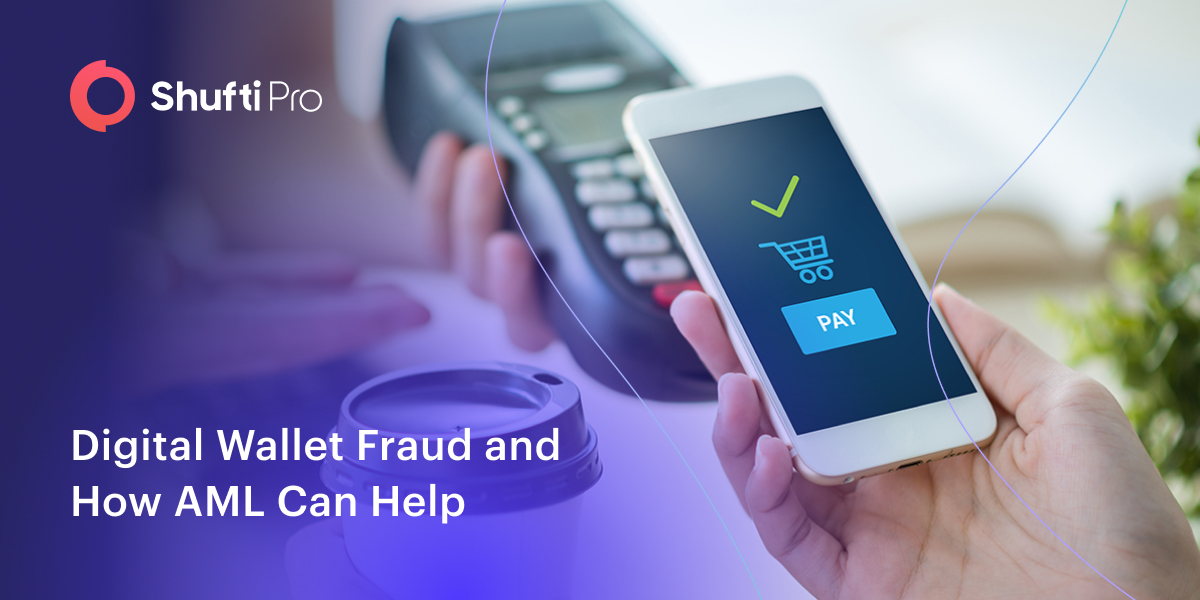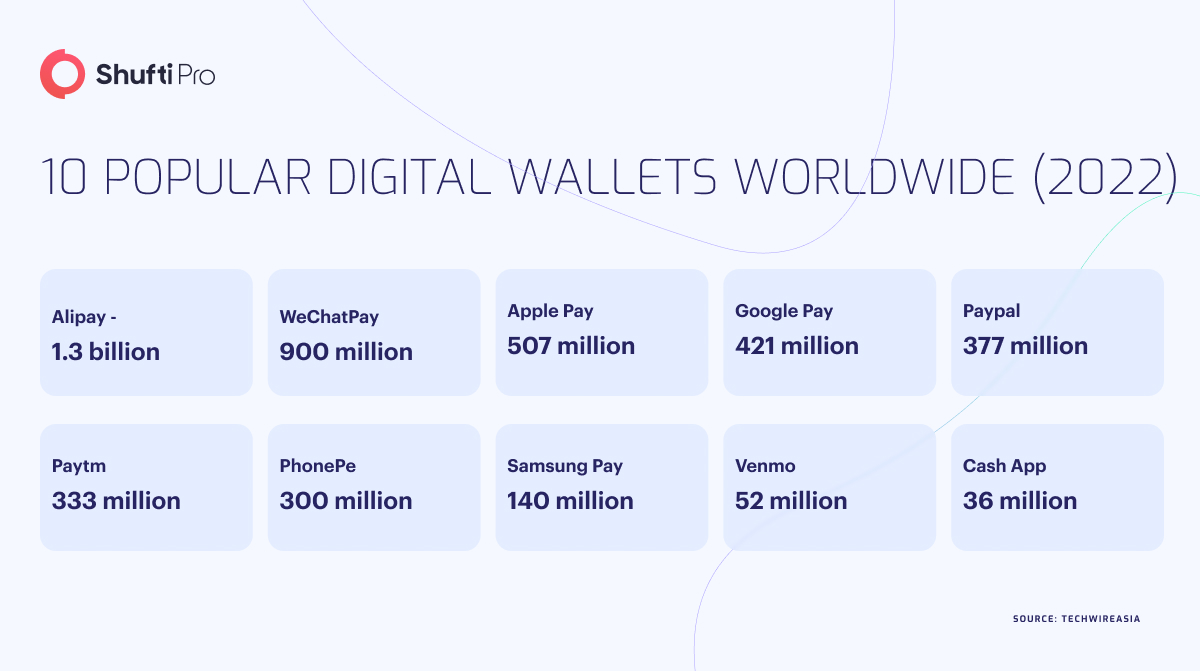Digital Wallet Fraud | How AML Screening Solution Can Help

Digital wallets are becoming everyone’s go-to transaction method and the total number of e-wallet users was 3.4 billion in 2022, further forecasted to reach 5.2 billion worldwide by 2026.
Besides generating revenue, it is becoming a hotspot for criminals and causing reputational damage to businesses. That’s where AML screening solutions come in—a reliable way to protect digital assets.
How Do eWallets Work?
Digital wallets enable users to link all their payment methods under a single account. The account stores funds, credit card numbers, and even cryptocurrencies and these wallets are accessible online through a smartphone or a website.
The main feature of e-wallets is that all information related to transactions is encrypted and tokenised. This enhances security and an individual’s privacy but also leaves the merchants in vain as they can not spot credit card scams.

The Risks of Money Laundering with Digital Wallets
eWallet firms pose a risk of money laundering and other crimes due to the anonymity provided by online financial services. Not only this but other aspects, such as the speed of transactions and lack of regulations from domestic and global authorities may also contribute to it. In detail, those risks involve:
- Anonymity: Sometimes digital wallet service providers may implement inadequate identity verification measures. Criminals take advantage of this to use services anonymously and fulfil their illicit intents. They use different tactics, such as proxies to open an account or even open many accounts for laundering money.
- Transaction Obscurity: Cybercriminals manipulate digital wallet services to conceal their efforts of laundering money. They either access multiple eWallet accounts from a single device to hide their identity or make many small transactions to conceal a handsome amount of transferred money. Digital wallets also offer to transfer money abroad to elude the attention of authorities.
- Speed: eWallet transactions occur quickly and in real-time just like many other digital financial services. This means that criminals can move illegal funds around quickly, bypassing safeguards and investigations. Rapid transactions help criminals structure their transactions, using several transfers across many accounts, to conceal the illegal origin effectively.
- Lack of Oversight: Some countries do not have effective legislation in place to deal with eWallet issues. Scammers, who are on the hunt for such loopholes, take this opportunity and exploit regulatory blind spots to accomplish their illicit goals. Moreover, the lack of oversight facilitates criminals in transferring illegal funds to different countries by avoiding suspicious activity reporting rules and reporting thresholds.
The Cost of Digital Wallet Fraud
One or two fake transactions may not wreak havoc on a company but the issue arises when transactions are recurring. They commit crimes at scale causing digital wallets to lose a large amount of money fast.
Besides financial costs, digital wallets also impact the customer experience and put a dent in brand reputation. Moreover, fraud victims take it to social media, scaring off potential customers. Thus, e-wallet services must abide by AML regulations to keep scammers at bay, protect customers and the company’s image, and avoid the risk of large non-compliance fines.
How to Comply with AML Regulations?
The Financial Action Task Force (FATF) sets out an Anti Money Laundering and Countering Terrorist Financing (AML/CFT) framework for the member states to implement in national legislation. This means that all the companies, including digital wallet service providers, have a legally obligated to conduct comprehensive risk assessments of their clients and modify their AML response proportionately. In practice, eWallets should include the below-mentioned measures to satisfy AML regulations:
- Customer Due Diligence: Digital wallets should conduct Customer Due Diligence (CDD) to verify Personally Identifiable Information (PII) like names, date of birth, address, etc. High-risk clients have to undergo Enhanced Due Diligence (EDD) under the risk-based approach.
- Transaction Monitoring: eWallet services must check their customers’ transactions and identify any suspicious activity that shows money laundering. In case any suspicious activity is detected, the organisation must generate a Suspicious Activity Report (SAR) to notify the authorities promptly.
- Screening and Monitoring: Digital wallet firms must check that their customers do not appear in sanction lists, watchlists, and Politically Exposed Persons (PEPs) lists. Moreover, eWallets also monitor clients for negative social media stories or any related things that increase the risk of money laundering.
Digital wallet service providers should look out for the following “red flag” behaviours to improve AML compliance.
- Disparities or inconsistencies in client verification during account registration.
- Unusual patterns of transactions or those involving PEPs or high-risk customers.
- Rapid and frequent cash withdrawals transferred to digital wallets.
- Routine transfer of money to third-party accounts after depositing them to eWallets.
- Transactions that occur above or below the reporting thresholds.
- Several account registrations, transfers or deposits that seem connected.
What Does Shufti Bring to the Table?
Shufti’s AML screening solution helps e-wallet companies guard their platforms against money laundering and other financial crimes. Shufti offers AML services to 230+ countries and territories with an accuracy rate of more than 99%.
Here’s what makes Shufti’s AML solution stand out:
- Verify e-wallet service providers’ registration numbers
- Screen potential customers against 1700+ international AML watchlists
- Perform thorough background checks of UBOs (Ultimate Beneficial Owners) in real-time
- Eliminate the risks of financial penalties
Want to know more about how an AML screening solution work?

 Explore Now
Explore Now













